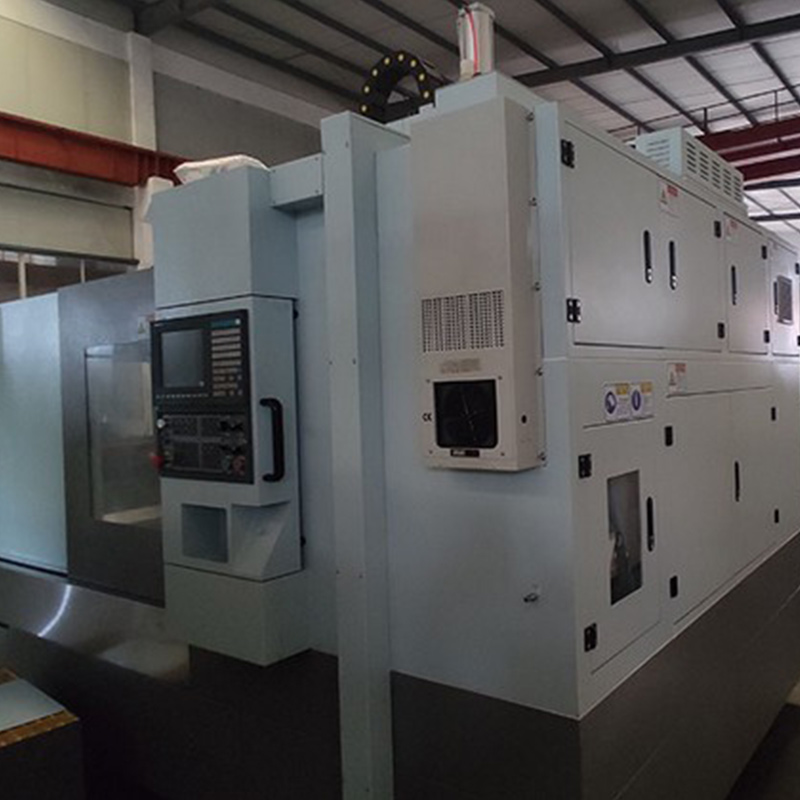
In the demanding realm of iron mold manufacturing, equipment stability emerges as a cornerstone that directly impacts machining precision and operational efficiency. Manufacturers globally seek CNC milling machines capable of sustaining rigorous workloads while maintaining tight tolerances. The DC1113 CNC milling machine distinguishes itself through a design philosophy centered on high structural integrity and enduring stability—a transformational choice for discerning buyers aiming to elevate both product quality and production reliability.

The DC1113’s hallmark lies in its innovative mechanical configuration, featuring a moving bridge, fixed crossbeam, and a firmly anchored worktable. This configuration is fundamental to minimizing vibrations and deflections commonly encountered in heavy iron mold machining. The moving bridge, constructed from high-strength cast steel and precision-machined via stress-relief annealing, ensures uniform load distribution during cutting operations. Simultaneously, the fixed crossbeam adds rigidity, stabilizing the spindle head, while the stationary worktable eliminates relative movement of large workpieces, enhancing clamping stability and positional accuracy.
Technical data underscores this: vibration amplitude is reduced by up to 40% compared to traditional gantry mills, while structural deflection under maximum load conditions falls below 0.02 mm, ensuring exceptional machining consistency.
Traditional CNC milling machines, often featuring moving tables or less integrated structures, experience higher wear and instability when processing dense iron molds. Excessive machine vibration and structural flex often translate into dimensional inaccuracies and premature tool wear. In contrast, the DC1113’s stable framework delivers a consistent machining process, which is evidenced by a 15-20% increase in first-pass yield rates according to customer manufacturing reports.
| Feature | Traditional CNC Milling | DC1113 CNC Milling |
|---|---|---|
| Structure Type | Moving Table with Fixed Bridge | Moving Bridge, Fixed Crossbeam & Table |
| Max Vibration Amplitude | 0.05-0.07 mm | 0.03-0.04 mm |
| Structural Deflection (max load) | 0.04-0.06 mm | <0.02 mm |
| First-Pass Yield Rate | Up to 80% | 95%+ |
Enhanced machine stability directly translates to tighter dimensional control, vital for complex iron mold geometries. The DC1113 offers machining accuracy within ±0.005 mm, enabling the production of molds that meet stringent industrial standards without frequent recalibrations or rework. This precision reduces scrap rates significantly—by up to 30%—and minimizes tool wear, lowering consumable expenses.
Furthermore, these gains in precision and stability foster higher throughput, shortening cycle times by roughly 10-15%, which collectively enhances overall cost competitiveness in production.
Investing in the DC1113 CNC milling machine means securing a manufacturing foundation resilient to production fluctuations and demanding workloads. Longevity is supported by the use of premium-grade alloy materials and heat treatments that mitigate fatigue, resulting in service life expectations exceeding 10 years under continuous operation. This reliability reduces downtime and maintenance costs, while safeguarding customers’ capacity to meet delivery commitments and maintain market reputation.
A leading iron mold manufacturer in Europe recently replaced their aging CNC milling units with DC1113 machines. Over a 12-month period, they reported a 22% increase in production output coupled with a 27% reduction in defective parts. Their quality control manager highlighted that "The stability of the DC1113’s moving bridge and fixed table system delivers unmatched consistency, enabling us to confidently tackle more complex mold designs."











